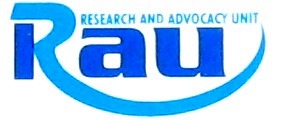The South African High Court recently made a decision on a torture case that if upheld is a resounding victory for Zimbabweans and human rights generally.
The issue originated from the raid on MDC offices in 2007. The police, apparently under orders from the ZANU PF, raided MDC offices at Harvest House and nearby stores arresting over 100 people. Those that were affiliated with the MDC were detained for days on end and tortured.

Affidavits were produced from the testimonies of the arrested and the medical practitioners who all attested to the claims. Due to the collapse of the rule of law in Zimbabwe (and certainly the non-prosecution of political offenders such as Joseph Mwale) the matter was brought to a South African court.
The applicants (the Zimbabwe Exiles’ Forum and the SA Litigation Centre) contended that South Africa was under a duty in terms of international law – the domestication of the Rome Statute in South African law – to prosecute international crimes. Therefore, due to the failure of the National Prosecuting Authority to investigate and prosecute they had failed to discharge their duty under South African law.
The respondents (National Director for Public Prosecution, The head of the Priority Crimes Litigation Unit, Director-General of Justice and Constitutional Development and National Commissioner of the South African Police Service) raised a number of concerns as to why they could not effectively investigate and prosecute. Firstly, diplomatic relations with Zimbabwe would be ruined, and, secondly, it was not possible to investigate a crime that happened in Zimbabwe without physically going to investigate. It was contended, among others reasons given for not investigating, that the Zimbabwean government would not cooperate, and the identities of witnesses would have to be revealed without any protection..
The crime to be investigated in this matter is the allegation of crimes against humanity. A crime against humanity is committed as part of a widespread or systematic attack directed against any civilian population and includes torture. Thus, those that carried out the torture as well as those who either ordered this or failed to prevent it were liable.
The court in its ruling stated that, under the International Criminal Court Act (ICC), there is need to investigate and political or diplomatic initiatives are not necessary at that stage; this may, however, become necessary at the prosecution stage. However, the judge argued that, even at the prosecution stage, the purpose of the ICC Act and South Africa’s commitment should be taken into account. Court said an attempt to investigate should have been made without speculation of the outcome.
The court said that the National Prosecuting Authority (NPA) and South African Police Services (SAPS) had negated their duty under the law by refusing to investigate the case. The refusal was not based on any fact or law, and therefore it was set aside. Therefore, the court ordered that an expeditious investigation be initiated with the NPA and SAPS carrying out their constitutional duties.
If this judgement is upheld by the Supreme Court of South Africa – should it be appealed – it would mean that South Africa will conduct an investigation, and, after doing so, it can prosecute any of the Zimbabwe government officials of crimes against humanity. No one has diplomatic immunity for crimes against humanity, and therefore anyone can be arrested. It also means that if a named person visits a country which has an extradition agreement with South Africa, they should be arrested and sent to South Africa for prosecution.
The Minister of Justice Chinamasa was quoted by the Herald ‘these people are working in cahoots with the ex-Rhodies who brought a case against Government on the land issue. They use the same source of funding to push a vendetta by white former colonial masters to cast Zimbabwe in the worst light to the world.’ He said the ICC had no jurisdiction over Zimbabwe as the country was not a State party to the Rome Statute that constituted it.’
No doubt we all know why Zimbabwe is not a party to the ICC. Whatever the Minister’s feelings are of ex-Rhodies, they have no bearing on the matter at hand. The judgment clearly states that, in terms of South African law, law South Africa has a legal duty to investigate and prosecute crimes against human, even if they are committed outside South Africa.
If this ruling stands, no doubt it would open the floodgates of cases against Zimbabwean perpetrators of human rights violations. Crimes against humanity are committed daily, and not only in Zimbabwe, and those countries that sign up to the Rome Statute, and domesticate this law, are bound to take steps against those that commit crimes against humanity, war crimes, and genocide. We can leave the last word to Lord Millet, one of the judges in the Pinochet case:
“Since the Second World War states have recognised that not all criminal conduct can be left to be dealt with as a domestic matter by the laws and the courts of the territories in which such conduct occurs. There are some categories of crime of such gravity that they shock the consciousness of mankind and cannot be tolerated by the international community. Any individual who commits such a crime offends against international law. The nature of these crimes is such that they are likely to involve the concerted conduct of many and liable to involve the complicity of the officials of the state in which they occur, if not of the state itself. In these circumstances it is desirable that jurisdiction should exist to prosecute individuals for such conduct outside the territory in which such conduct occurs.” [Millet, ex parte Pinochet(3)(1999)]
